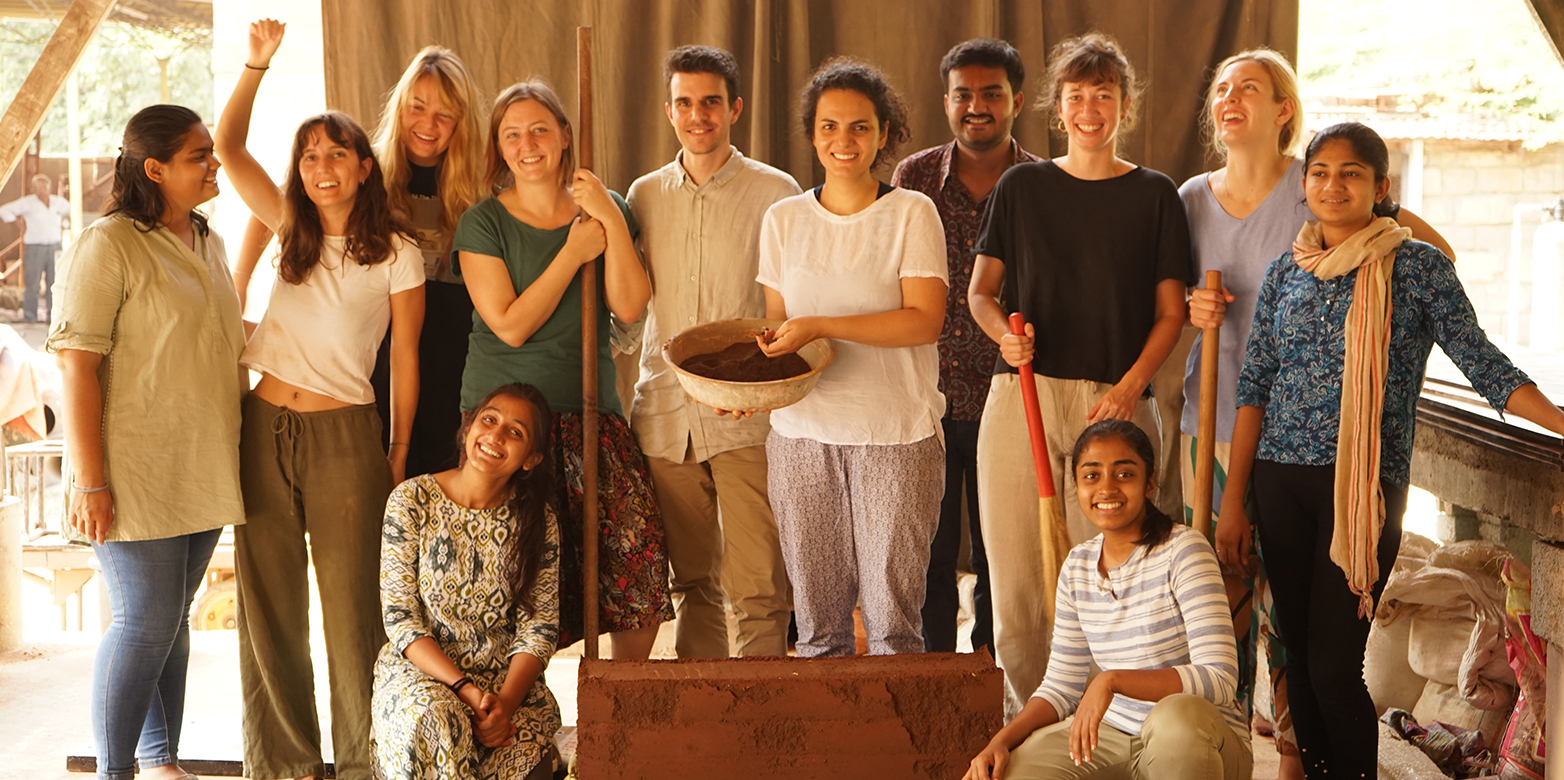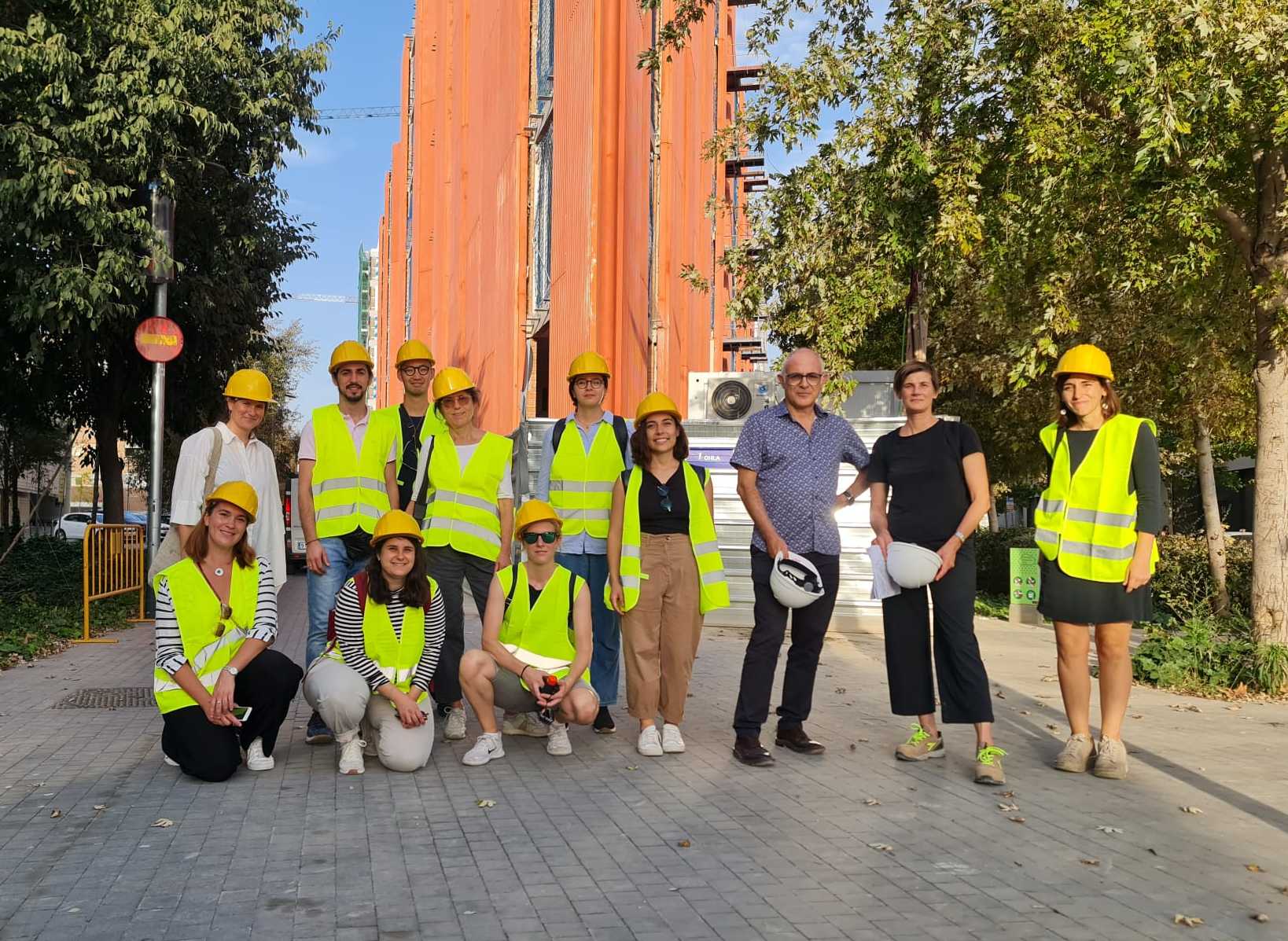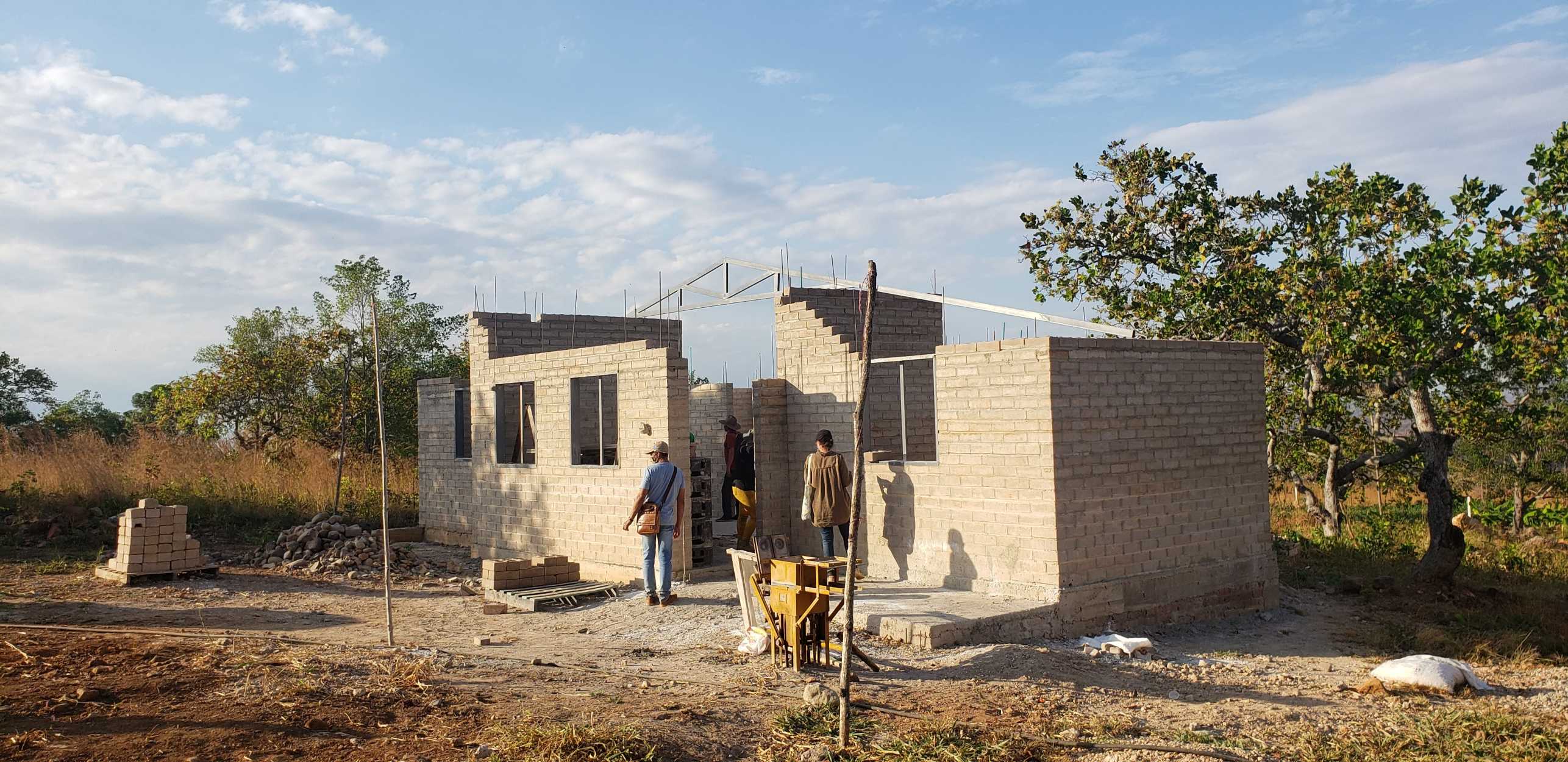Seminar Week

The seminar week focuses on key topics of the MAS and provides an opportunity to put the knowledge and skills acquired throughout the MAS into practice within a specific context. Participants will learn about existing housing strategies, visit projects, meet with related communities and stakeholders, and reflect upon contextually appropriate housing solutions.
Previous seminar weeks

The MAS ETH in Housing visited Barcelona in October 2022 as part of the Seminar Week. Students had an opportunity to study the city´s innovative current housing policies aimed at providing affordable housing to its inhabitants.
After the global financial crisis, the alarming consequences of the commodification of housing became evident, exacerbating social inequalities. Suddenly, families that were heavily indebted to finance their homes, found themselves unable to pay their mortgages and were forcibly evicted from their homes. This caused a serious housing crisis that triggered a struggle against commodification of housing by social movements such as the PAH (Platform of Mortgages Victims), the 15M Platform, that have been working to transform the legal and institutional housing frameworks in favor of strengthening the promotion of non-profit housing.
On this trip we examined the causes and consequences of the commodification of housing in Barcelona as case study and we visited and studied different housing approaches aimed at improving access to affordable housing.

The School of Architecture for Reconciliation took place between January and May 2021 and was co-organized by the MAS ETH in Housing and the Universidad Nacional de Colombia (UNAL) with the participation from the École Nationale Supérieure d'Architecture de Versailles (ENSAV). Due to the pandemic the school took place online international School brought together an international community of scholars, policy makers, architecture students, victims of armed conflict and former combatants who are currently developing Ciudadelas de Paz, a mutual-aid housing cooperative as part of their reintegration process. It combined elements of a design studio and reflections on social, organisational and legal aspects of housing cooperatives. Through a combination of open lectures, virtual working groups and design workshop, the School created a platform for exchange through the hurdles of pandemic restrictions and physical isolation. The participants jointly produced a Handbook that support the members of the cooperative to enhance the construction quality of their houses through locally available technologies and building
More information of the School of Architecture for Reconciliation can be found in the following site.
![Publication 'The [Seasonal] Arrival City”](/en/education/mas-housing/seminarweek/_jcr_content/par/accordion/accordionitem_1589996106/par/fullwidthimage/image.imageformat.1286.325371441.png)
During the autumn of 2019, the students of MAS Housing had an opportunity to visit the city of Bhuj in Gujarat, India and learn from the experiences of 'external pageHomes in the Citycall_made', a coalition of civil society organisations working with circular migrants and their right to the city.
This seminar week built upon the knowledge gained in Bhuj through a publication oriented, weeklong workshop in Zurich in March 2020. In addition to proposing strategies and designing housing prototypes for circular migrants in the city of Bhuj, the seminar week participants developed illustrated storylines of circular migrants in Bhuj.
Outcomes of the seminar week are brought together in the forthcoming publication 'THE [SEASONAL] ARRIVAL CITY' edited by Nitin Bathla and Jennifer Duyne Barenstein.

Accommodation in the centre: Combining tradition and modern building practice in urban India
After a successful first iteration of the collaborative housing studio organised by ETH CASE ETH Wohnforum in partnership with UN-Habitat in Maputo, Mozambique, the project will shift its regional focus to India. Organized with the generous support of Innovedum programme at ETH, the seminar week will build upon the local expertise of the Hunnarshala Foundation.
In an era of unprecedented ‘planetary urbanisation’, traditional landscapes are facing rapid transformations. Not only are an ever increasing number of migrants heading to urban centres every year, but traditional construction and building practices are also rapidly receding through urbanisation. These factors negatively affect the opportunities for urban poor, migrants, and nomadic minorities in accessing decent and affordable housing in cities.
Located in the remote but rapidly modernising district of Kutch in Western India, Bhuj offers an ideal location to reflect on challenges and solutions for affordable housing in rapidly urbanising places across the world. A massive 7.7 scale earthquake in 2001 devastated almost half of Bhuj’s buildings. A majority of the structures left standing here were constructed using traditional techniques. Hunnarshala foundation, which was involved in the reconstruction saw this as a moment of creative reconciliation of traditional and modern building practices and of bringing urban resilience through training craftsmen. A strategy that has been adopted in slum and housing upgradation projects in Bhuj.
The weeklong praxis-oriented workshop in October 2019, will introduce students to housing challenges and conflicts of modernity in rapidly urbanising India. The students will gain hands-on exposure to the design philosophy and construction practices of Hunnarshala, visit traditional housing typologies, interact with local housing experts, and co-produce design ideas through an active participation with communities.
The seminar trip to India will be followed up by a Spring Semester workshop in Zurich between 16-20 March 2020. The spring workshop will bring together the students of MAS ETH Housing with architecture students in Zurich to work on design and policy solutions for challenges that emerged in the weeklong engagement with Hunnarshala and civil society in Kutch.

Formalizing the Informal: Incremental Housing as National Strategy
Since the beginning of this year, ETH Wohnforum - ETH CASE has been working closely with UN-Habitat to better adapt its range of courses to the international challenge of housing construction and the associated task profile of the architect. In the course of this endeavour, an Innovedum project was successfully submitted, which aims to offer ETH students a practical and up-to-date challenge of affordable housing in the Global South. For the year 2018-19, the focus is on the partner country Mozambique and its endeavour to adopt a national housing policy that recognises informal practices and embeds them in a process-oriented housing strategy (incremental housing strategy). This bold step requires completely new approaches in architecture, housing finance, urban planning and governance.
We cordially invite ETH students to participate in the seminar trip to Mozambique in order to gain experience in the form of first impressions, project visits and lectures (by architects, civil society, communities, UN-Habitat) as well as smaller group exercises, which will later be deepened and elaborated in more detail in the second Housing at the Centre (H@C) Workshop in Zurich (spring 2019). Participation in both seminar weeks is not compulsory, but is recommended to maximize the learning experience. Through the direct involvement of UN-Habitat and the Government of Mozambique, it is an implicit goal to develop the best project proposals into implementable housing strategies.
The learning objective
The learning objective of the seminar week to Mozambique is to gain experience and impressions of the specific housing construction challenge of a partner country. The collaboration of ETH Wohnforum - ETH CASE and UN-Habitat will not only provide insights into local projects, important actors, but also into current processes of national and international housing policy (Policy in the making). During the course of the week, participating students will develop reflection skills that will enable them to better link the built environment and the reality of housing with greater development challenges in the future.
An additional opportunity to acquire these competences is offered by the spring semester 2019, where participation in a workshop aims at elaborating project ideas and developing the necessary design steps so that every decision has social, financial, regulatory, and urban planning consequences. This learning experience situates architecture in its wider field of tension and ultimately the architect in his field of activity and in conjunction with other decision-makers and institutional frameworks. These insights and the sharpening of relevant reflection skills are essential qualities for any architect who wants to deal with specific housing challenges in the 21st century.
